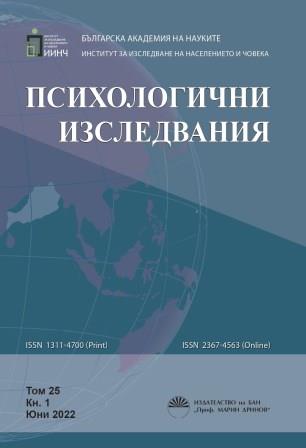Spurious Correlations Due to Internal Psychological Biases When Measuring With Subjective Questionnaires
Spurious Correlations Due to Internal Psychological Biases When Measuring With Subjective Questionnaires
Author(s): Georgi PetkovSubject(s): Psychology, Cognitive Psychology
Published by: Институт за изследване на населението и човека - Българска академия на науките
Keywords: spurious correlation; Likert scale; questionnaires.
Summary/Abstract: Estimations of correlation could be overestimated due to sample errors, measurement noise, and biases, but also because of the nature of the correlational coefficient. In particular, it is a dispute whether the correlation reflects a single common factor (or few), or that it may emerge from a huge number of common factors, including contextual ones, so many, that it is impossible to control them all and therefore, it is needless to explore them at all. It is a widespread method in psychology to use various questionnaires, assuming that they measure some not directly observable psychological constructs. In this context, some temporal factors like mood, the current condition, and some more stable ones like cultural or personal specifics may produce spurious correlations. Two known psychological biases – ends effect and favorite number effect, when answering to questionnaires were simulated and it is demonstrated how they could produce moderate spurious correlation.
Journal: Психологични изследвания
- Issue Year: 25/2022
- Issue No: 1
- Page Range: 77-87
- Page Count: 11
- Language: English

